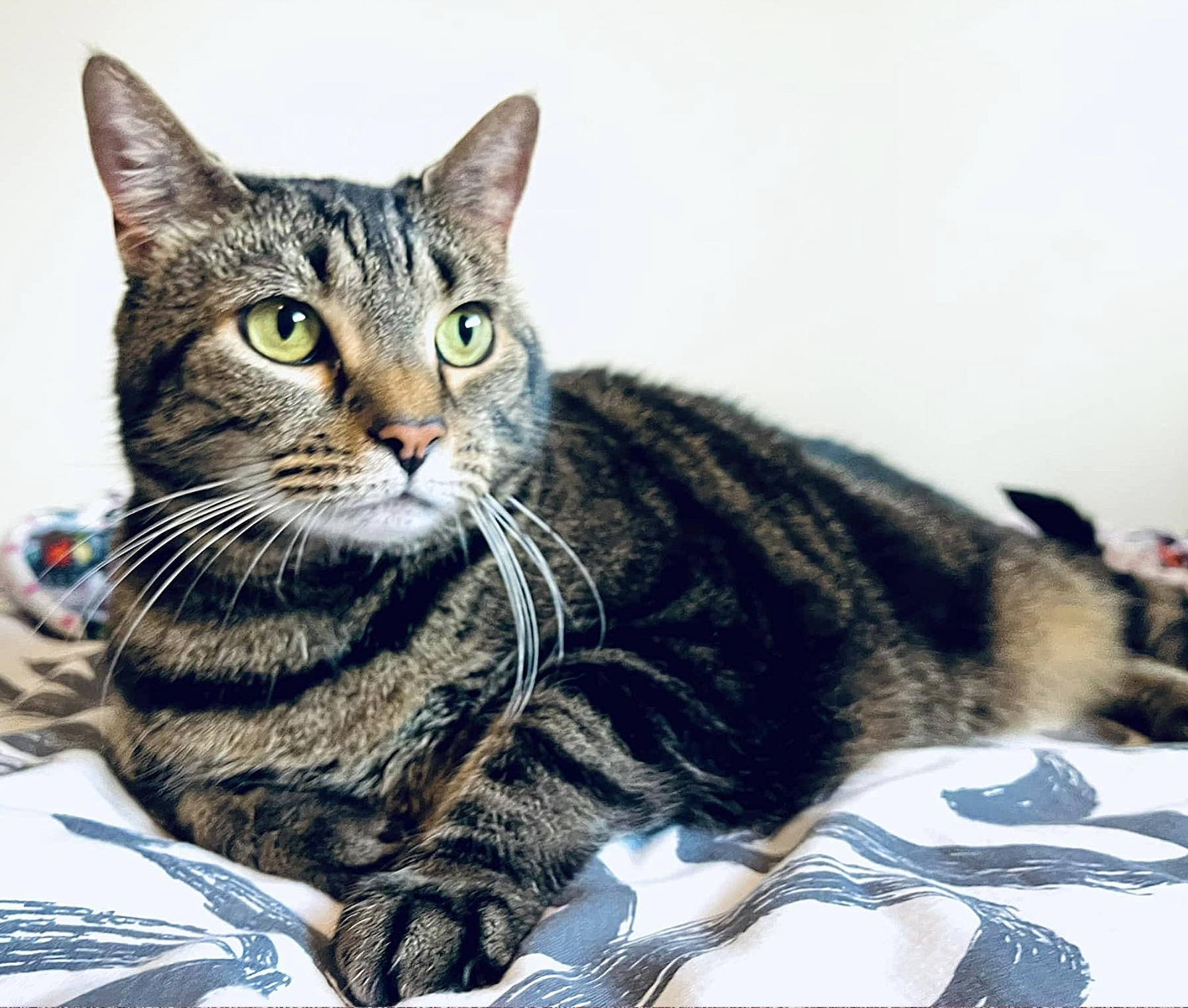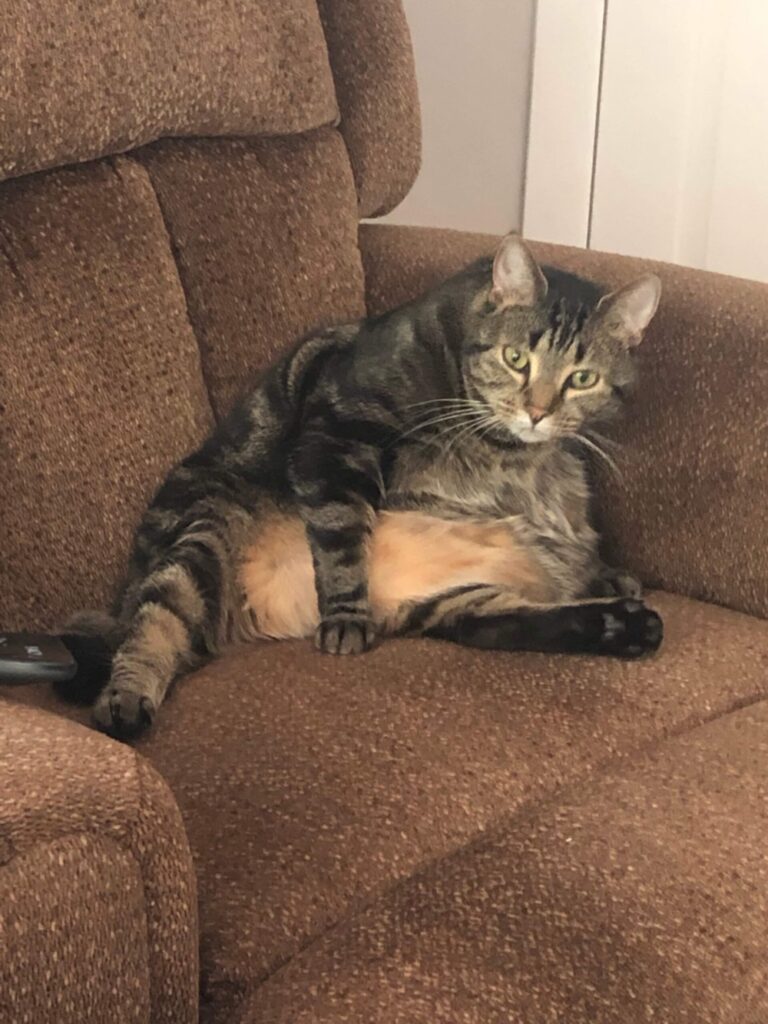Meet Mindy – A Lot to Love

By Kathleen Silver
Recently, a kitty adopted from HSLC four years ago was returned to us. Unfortunately, Mindy’s family developed allergies and couldn’t keep her. Mindy, a gorgeous Tabby, also has one issue other than needing a new home: Obesity. She can’t effectively clean herself with so many extra pounds. Her coat was matted and dull by the time she came to HSLC. Mindy’s foster parent supposes that her previous home may have free-fed the companion animals in the house; therefore, it’s likely that Mindy snacked — a lot.
A Little On Obesity
Attempting to get a food-driven kitty like Mindy not to overeat may be challenging. After all, it can be difficult to resist the constant meowing and big round eyes. But obesity in cats and dogs is one of the top dangers leading to diabetes, intra-abdominal cancers, heart disease, and hypertension. Furthermore, with disease comes extra veterinary costs for medications and tests and an increased risk of complications from anesthesia if a pet ever needs surgery. Obesity is common in older indoor pets that are not as active as they were in their early years and can lead to osteoarthritis, degeneration of joints, and bladder stones. Overweight pets are more likely to have shorter lives and tend to interact less with their families physically. They can be more lethargic, so it is easier to miss early signs of illness.

When a cat or dog is heading toward severe weight gain, it is time to acknowledge the situation. It is imperative to consult with a veterinarian on the correct approach to helping your companion animal lose or maintain weight so obesity doesn’t creep into their life. Simply cutting the amount of food may not be the ideal approach. It’s possible to cause a cat or dog to become malnourished by cutting food. What’s best is to talk to your veterinarian about the type, frequency, and portion sizes of the new food to facilitate weight loss. Then, it is the pet owner’s job to be consistent with the food and resist the temptation to give treats.
Introducing a pet to a new food takes time. Most pets like their routine, and changing it can cause them to retreat and become moody. Take the first 2-3 weeks to mix their everyday food with the new food. The goal is to wean them off the old food and habituate to the new, healthier diet.
Exercise is another feature to help an obese or overweight animal. However, exercise must begin slowly if the pet usually doesn’t move much. Even if a cat or dog lays on its back batting at a toy — that’s some exercise! Many people might say, “My pet won’t play.” But, with some trial and error, you will find an activity that your pet will enjoy. Once you find it, commit consistently to playing with your cat or dog for 5-10 minutes daily, more if possible. As time passes, your pet will eventually become more interested and may even seek you out for a few more minutes of playtime.
Back to Mindy’s Story
As for Mindy, she now eats a special low-carb diet to give her the best life possible and to reduce her weight. Mindy’s foster parent, Stephanie, reports that in only four weeks, Mindy’s coat has regained most of its former sheen, and she’s back to grooming herself.
Mindy is great with children and other cats; she tolerates dogs. Miss Mindy always finds a way to curl up on a lap. She craves attention and loves cuddling. However, Mindy won’t do well with a home that free feeds. She will need her meals on a schedule. Stephanie also says she doesn’t beg for food between meals, likely due to the high-quality food she’s now eating.
Mindy plays with toys and loves to interact with people and children. She has the most fun chasing plush toys with sounds or bells and hunting ribbons and string. Mindy is very friendly and ready to find her new home.
February 2023 Update: Mindy has been adopted! However, you can click here if you’re interested in adding one of her friends to your family!
